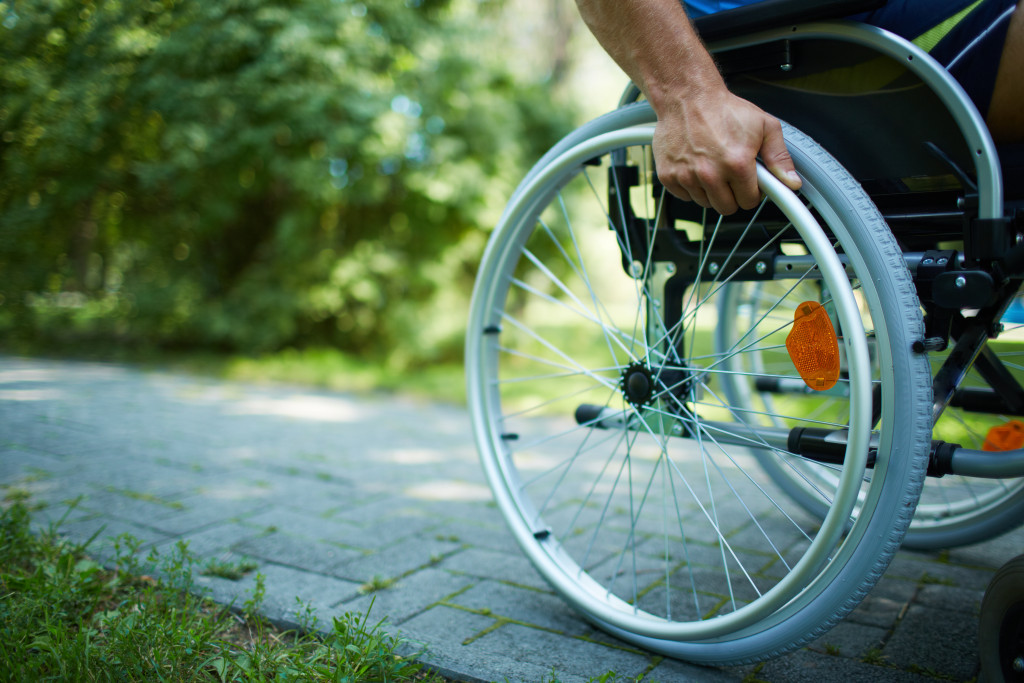- Individuals with disabilities can maintain independence by establishing a daily routine and using assistive devices to simplify daily tasks.
- Regular physical activity adapted to individual needs can foster physical and mental well-being.
- A tailored, healthy diet supports overall health and well-being, while social connections combat loneliness and provide emotional support.
- Prioritizing mental health and seeking professional help is crucial for dealing with the stresses of living with a disability.
Living with a disability may pose unique challenges, but it doesn’t have to limit your ability to care for yourself at home. Numerous strategies can help you maintain your independence. Delve into some practical ways to ensure personal care and maintain a high quality of life, right from the comfort of your home.
Develop a Daily Routine
Establishing a consistent daily routine is a powerful strategy that can significantly enhance your ability to manage day-to-day tasks independently. Here are some tips:
Use Assistive Devices
Assistive devices, such as grab bars, walking aids, and adapted utensils, can dramatically improve your daily living. Strategically place grab bars in your bathroom to aid in getting in and out of the bathtub or standing from the toilet. Walking aids, like canes or walkers, provide stability and balance, reducing the risk of falls.
Consider using adapted utensils designed with larger, easy-to-grip handles in the kitchen, making it easier to prepare meals. A reacher-grabber tool can aid in picking up items without bending over, thereby preventing strain or injury.
Similarly, button hooks and zipper pulls can help manage dressing tasks. Remember, using assistive devices isn’t to highlight limitations, but to enhance abilities and foster independence. Embrace these tools, and see how they can transform your daily routine into a more manageable, enjoyable experience.
Stay Active

Physical activity is crucial for maintaining overall health and well-being, even with a disability. Many exercises can be adapted to your needs, promoting muscle strength, flexibility, and cardiovascular health. Water aerobics or swimming can provide a low-impact, high-resistance workout that puts minimal strain on your joints.
Alternatively, chair exercises can be an excellent option if mobility is a concern. Physical activity isn’t just about maintaining physical health—it also aids in boosting mental health by reducing stress, anxiety, and depression symptoms. Consult a healthcare provider to devise a safe and effective exercise routine tailored to your needs and abilities.
Remember that even small movements count, so start small and gradually increase your activity level. Staying active benefits your health more than just; it fosters a sense of accomplishment, autonomy, and positivity, further enhancing your quality of life.
Maintain a Healthy Diet
Maintaining a healthy diet is paramount to managing your health and well-being. A balanced diet, rich in fruits, vegetables, whole grains, and lean proteins, can provide the essential nutrients your body needs to function optimally. Dietary modifications may also be necessary based on your health condition or medication.
For instance, a low-sodium diet for managing hypertension or a high-fiber diet for promoting digestive health. If cooking or meal preparation poses a challenge, consider meal delivery services or pre-prepared meals from your local grocery store. Staying hydrated is also essential, especially if you are active or taking certain medications.
Always consult a dietitian or healthcare provider to create a diet plan tailored to your nutritional needs and lifestyle. Your diet is a powerful tool in promoting health, enhancing mood, and fostering independence. Remember, the food you eat can be the best form of medicine or the slowest form of poison. Choose wisely!
Stay Socially Connected
Staying socially connected is an overlooked but vital aspect of leading an independent and satisfying life, even with a disability. Regular social interaction can significantly improve mental well-being, combat feelings of loneliness, and provide emotional support. Maintain regular contact with family, friends, or support groups in person or through digital platforms.
Participating in community events, clubs, or volunteering opportunities can also offer meaningful social interactions. If mobility is a concern, online communities and platforms can provide a virtual space for interaction and engagement. Just because you have a disability doesn’t mean you have to navigate life alone. Reach out, stay connected, and remember that your value isn’t determined by your physical abilities but by the strength of your spirit and the richness of your relationships.
Prioritize Mental Health

Mental health is as vital as physical health when living with a disability. Living with a disability can sometimes bring about frustration, stress, or even depression. Hence, it’s essential to prioritize mental well-being by seeking professional help, such as therapists or counselors experienced in disability-related concerns.
Embrace relaxation techniques like meditation, deep breathing, or yoga to manage stress and cultivate a positive mindset. Simple activities, like reading a book, listening to music, or pursuing a hobby, can also provide therapeutic benefits. Remember to focus on your abilities rather than disabilities, celebrate small victories, and maintain a positive outlook.
Mental resilience often comes from embracing your situation and recognizing your strengths. Remember that seeking help and taking steps to nurture your mind is okay. Because in the journey of life, maintaining a positive mental state is the strongest tool you can possess.
Seek Professional Help
Seeking professional help is key to maintaining independence and ensuring safety when living with a disability. Hiring reputable in-home disability services can provide a tailored plan of care that addresses your specific needs and enhances your life quality. These professionals can assist with daily tasks, provide physical therapy, medical management, and most importantly, offer companionship and emotional support.
They can work with you to identify potential challenges and provide practical solutions to overcome them, ensuring you can lead a fulfilling, independent lifestyle in your home. With their expertise and genuine care, you’re not just hiring a service but adding a valuable companion to your life journey. Remember, it’s about enhancing your abilities, not highlighting your limitations. With the right support, you can live a fulfilling, independent life, and that’s what in-home disability services can bring to your doorstep.
In conclusion, remember that living with a disability doesn’t mean compromising your independence. Equip yourself with the right strategies, support, and attitude to embrace your potential fully. Remember, it’s your life—live it on your terms. Take action today, and step into a more independent, fulfilling lifestyle.



